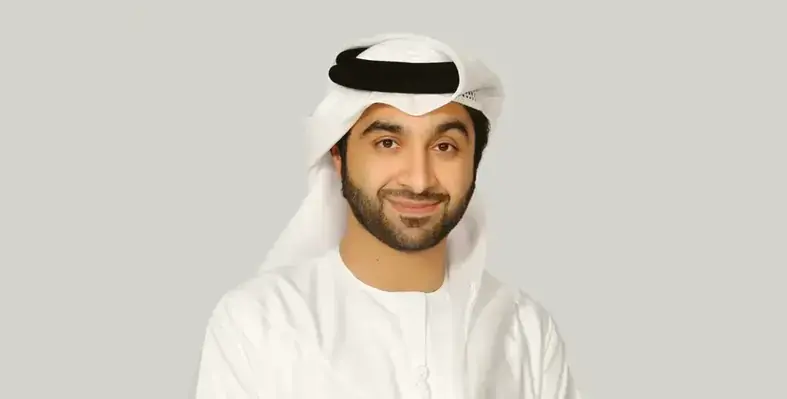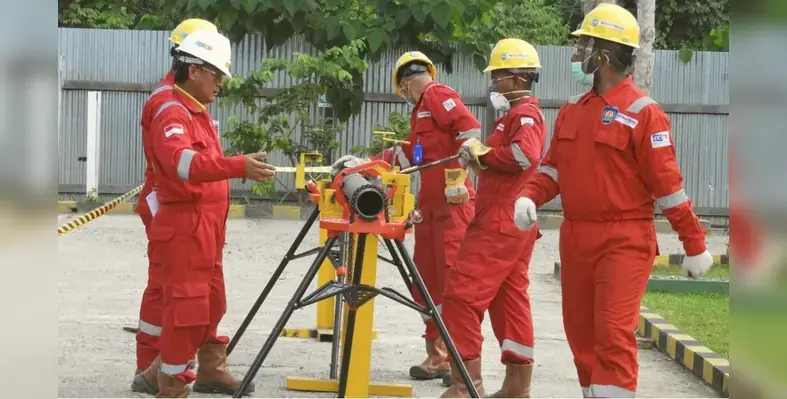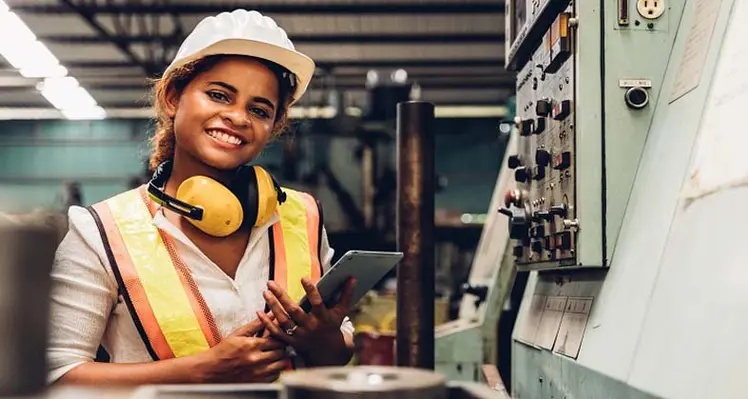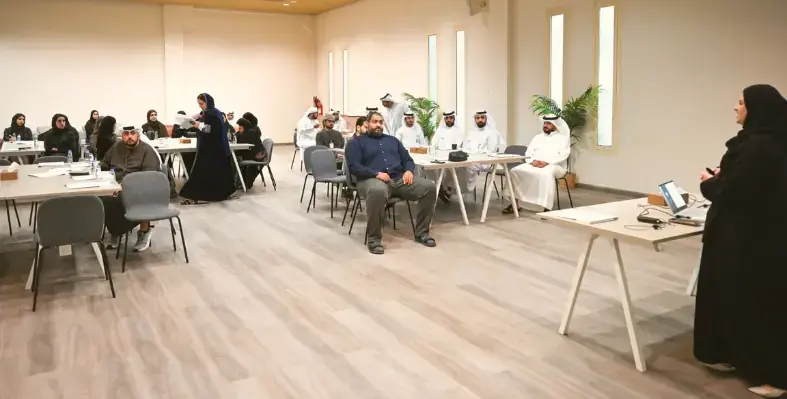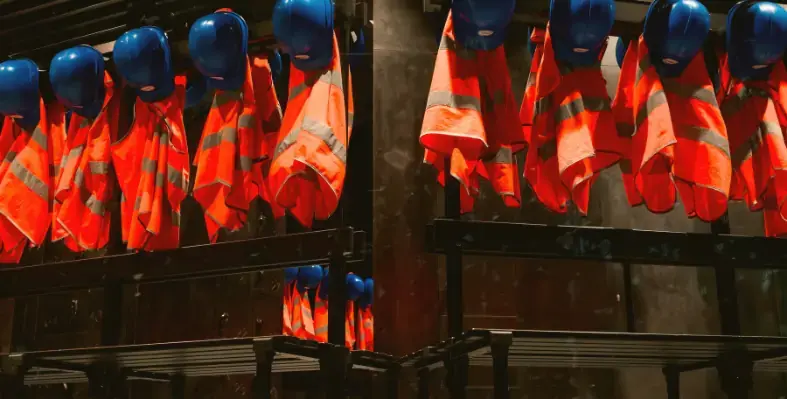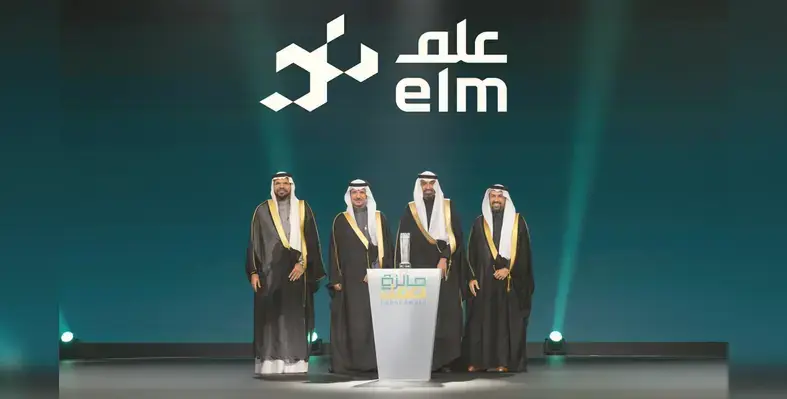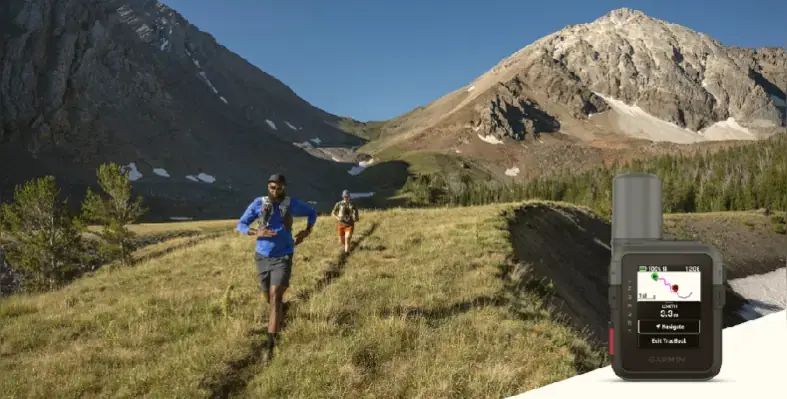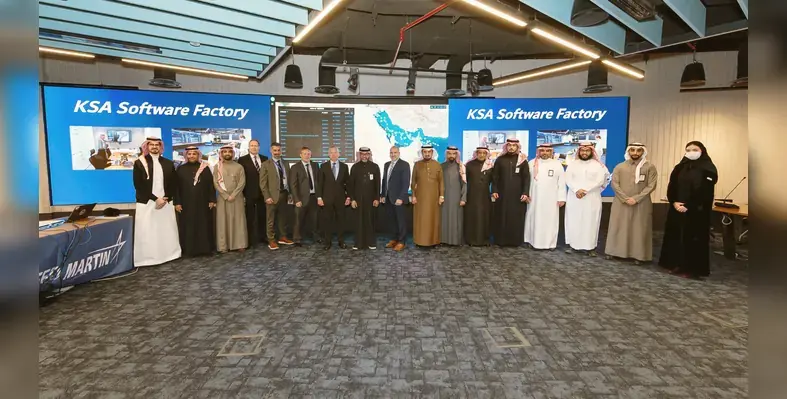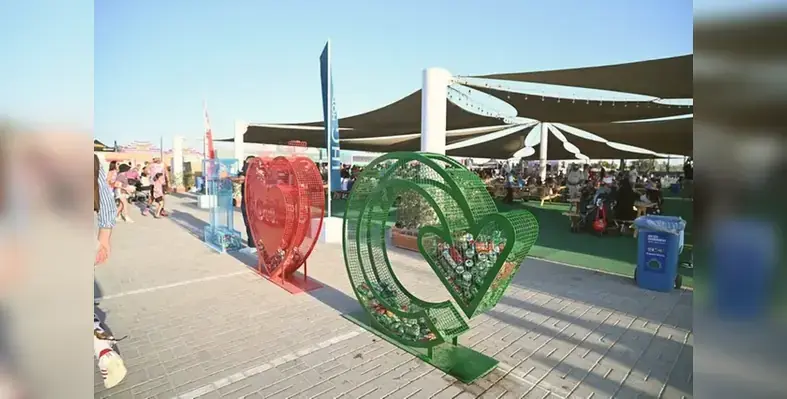Industrial Insights
Industrial Insights
- Details
- Sania Aziz
- Industrial Insights
- Date: 10th February 2026
- Year: 2026
His Excellency Shaikh Rashid bin Abdullah Al Khalifa, Minister of Interior of the Kingdom of Bahrain, received Singapore’s Coordinating Minister for National Security and Minister for Home Affairs, K. Shanmugam, and his accompanying delegation, according to Bahraini news reports.
An official salute was performed upon the delegation’s arrival before the two ministers proceeded to formal talks. Shaikh Rashid welcomed the Singaporean minister and expressed his hope that the visit would further enhance security cooperation and coordination between Bahrain and Singapore, reflecting the strong relations between the two countries.
The Interior Minister praised the depth of bilateral ties and the shared commitment to strengthening cooperation in ways that serve the interests of both nations and their peoples. He emphasised the importance of exchanging expertise, particularly in the application of modern and digital technologies, to improve the efficiency and quality of security services.
Shaikh Rashid also highlighted the need to address common security challenges through joint action, noting both countries’ membership in the International Security Alliance, headquartered in Abu Dhabi.
During the meeting, the two sides discussed expanding cooperation in civil protection, public safety and the adoption of advanced technologies, including artificial intelligence. Talks also covered collaboration in training, knowledge exchange and combating financial and economic crimes.
Additional areas of discussion included the use of drones, Singapore’s experience in strategic planning, and the application of science and technology in security and border control systems. The ministers also reviewed training and development programmes, as well as efforts to streamline procedures through digitalisation to enhance institutional performance, quality standards and oversight mechanisms.
At the conclusion of the meeting, both sides agreed to sign an agreement regulating police cooperation across several areas. They also agreed to establish a joint follow-up and coordination committee to support technological development in the security sector, strengthen technological infrastructure and expand the use of artificial intelligence applications.
- Details
- Sania Aziz
- Industrial Insights
- Date: 4th February 2026
- Year: 2026
The Ministry of Higher Education and Scientific Research (MoHESR) has adopted new Clinical Training Guidelines aimed at strengthening partnerships between higher education institutions (HEIs) and clinical training facilities, ensuring consistent, high-quality academic and practical experiences for students enrolled in health profession programmes.
The guidelines establish a unified national framework for clinical training governance, a core pillar of health professions education. They are designed to integrate theoretical learning with hands-on practice, reinforcing clinical training as a critical link between academic education and labour market needs, and supporting the graduation of qualified, job-ready healthcare professionals.
His Excellency Ibrahim Fikri, Acting Assistant Undersecretary for the Higher Education and Scientific Research Regulation and Governance Sector, said the guidelines complement the Ministry’s recent decision on governing work experience obligations in HEIs. He noted that the framework supports efforts to strengthen health education, align academic and practical training, and prepare qualified national talent for the healthcare sector. He added that the move reflects the Ministry’s commitment to unified standards that enhance the sustainability and efficiency of the healthcare system and support the UAE’s vision for an integrated education and healthcare ecosystem.
The Ministry of Health and Prevention (MoHAP) also welcomed the adoption of the guidelines, highlighting their role in building a resilient and future-ready healthcare workforce. His Excellency Dr. Hussain Al Rand, Assistant Undersecretary for the Public Health Sector, said the guidelines will strengthen a comprehensive national framework for developing healthcare professionals by prioritising professional excellence and workforce readiness from the earliest stages of education.
Dr. Al Rand added that standardising clinical training frameworks helps align education outcomes with the evolving needs of the healthcare system, while ensuring clinical skills development based on competence, professional responsibility and patient safety. He stressed that strong collaboration between educational institutions and healthcare entities is essential to advancing evidence-based, knowledge-driven health policies and sustaining long-term healthcare capacity.
The National Institute for Health Specialties described the guidelines as a significant step forward in enhancing the quality of practical training across hospitals and healthcare facilities. His Excellency Dr. Mohammed Al-Houqani, Secretary General of the Institute, said the framework ensures structured, high-quality clinical training based on unified standards, enabling students to build competencies, transition smoothly into the workforce and contribute effectively to the healthcare sector’s advancement.
The guidelines apply to all health profession programmes that require clinical training under the National Qualifications Framework, excluding postgraduate pathways such as internships, residencies and fellowships. They emphasise structured clinical training to help students gain practical experience, develop professional skills and understand healthcare operations, while also supporting facilities in building national competencies and strengthening collaboration with HEIs.
They also introduce a comprehensive governance model covering planning, implementation, monitoring and evaluation of clinical training. Clear roles and responsibilities are defined for HEIs, healthcare facilities, supervisors and the Ministry, ensuring quality assurance and alignment with national strategies and labour market needs.
Formal, documented partnerships between HEIs and clinical training facilities are mandated through binding agreements covering training scope, capacity, supervisor qualifications, assessment processes, and legal and insurance responsibilities. The guidelines further highlight the importance of qualified supervision, adequate learning resources and progressive, competency-based training environments, supported by systematic documentation and continuous performance monitoring.
The initiative aligns with MoHESR’s broader efforts to regulate work experience in higher education through a unified national framework that defines responsibilities, supervision and monitoring mechanisms to ensure consistent, high-quality training outcomes nationwide.
- Details
- Louise Waters
- Industrial Insights
- Topic: Training
- Date: 3rd February 2026
- Year: 2026
ECITB Global, the international division of the UK’s Engineering Construction Industry Training Board’s (ECITB) has rolled out a new course to standardise leadership-level safety training for managers and team leaders operating within engineering construction projects worldwide
The Leading a Team Safely (LaTS) course is designed to equip team leaders and managers with the essential skills and knowledge required to effectively lead their teams while maintaining the highest standards of safety and efficiency in dynamic industrial environments.
It focuses on the essentials of leadership such as planning, implementing and reviewing, with an emphasis on health and safety. It is designed to support individuals working in multiple sectors, such as oil and gas, power generation, renewables, chemical processing, manufacturing and construction.
Following a successful pilot, the LaTS course is now being rolled out throughout the ECITB’s existing licensed training provider network across multiple international regions.
ECITB head of Commercial Tristan Kemp said, “As part of a strategic alignment with industry standards and to streamline health and safety leadership training across borders, ECITB Global is implementing the Leading a Team Safely course as a key component of its global training framework.
“It will ensure a consistent, high-quality approach that mirrors UK best practices while being tailored for deployment across complex global projects, particularly in high-risk sectors such as oil and gas, petrochemicals, renewables and heavy engineering.
“LaTS emphasises influencing safety culture, effective communication and team leadership – addressing root causes of unsafe behaviour and improving team performance.”
One of the largest employers in the engineering construction industry mandated that all its supervisory staff in the UK complete the LaTS course in 2024.
Altrad trained around 1,000 UK-based workers on the LaTS course to ensure they are aware of and working to the latest safety protocols and operational best practices.
Donna Mulvihill, head of Learning & Development at Altrad, said, “The ECITB Leading a Team Safely course is instrumental in equipping our staff with the skills and knowledge necessary to maintain the highest standards of safety and operational efficiency.”
- Details
- Sania Aziz
- Industrial Insights
- Date: 3rd February 2026
- Year: 2026
NEBOSH has renewed its partnership with global beauty company L’Oréal to launch the fourth edition of the NEBOSH L’Oréal International Bursary, aimed at supporting women seeking to enter or progress within the occupational health and safety profession.
The initiative forms part of a broader effort to address gender imbalance in health and safety roles worldwide by removing financial barriers to professional qualifications. Under the 2026 programme, 20 women from around the world will be awarded fully funded tuition and assessment for the NEBOSH International General Certificate in Occupational Health and Safety.
Widely recognised by employers across multiple industries, the NEBOSH International General Certificate provides a strong foundation in health and safety management, covering risk assessment, hazard control, incident investigation and the development of effective safety systems. The qualification is often a prerequisite for entry-level and supervisory health and safety roles and is recognised in more than 170 countries.
NEBOSH said the bursary is intended to support women at different stages of their careers, including those looking to transition into health and safety from other disciplines, as well as those already working in related fields who want to formalise their knowledge and enhance career progression. By targeting women globally, the programme also reflects the increasingly international nature of health and safety roles and the need for consistent standards across borders.
Applications for the 2026 bursary opened on 22 January and will close on 20 February. Candidates are required to submit a short video outlining their motivation for pursuing a career in health and safety and explaining how achieving the NEBOSH International General Certificate will contribute to their professional development. Successful applicants will be selected based on their commitment to the profession, personal circumstances and potential to make a positive impact in workplace health and safety.
The partnership with L’Oréal builds on the company’s wider commitments to inclusion, employee wellbeing and safe working environments across its global operations. By supporting access to internationally recognised health and safety education, the bursary aligns with efforts to strengthen prevention-focused cultures and improve standards across industries.
Since its launch, the NEBOSH L’Oréal International Bursary has supported dozens of women worldwide, many of whom have gone on to secure health and safety roles or progress into more senior positions within their organisations. NEBOSH said the continued demand for the programme highlights the ongoing need for targeted initiatives that support diversity and skills development within the profession.
With applications now open, the 2026 bursary represents another opportunity for aspiring health and safety professionals to gain a recognised qualification and contribute to safer, healthier workplaces globally.
Sarah Abdalwhab QHSE Consultant and a member of the Bursary judging panel, said, “I am proud to support the NEBOSH L’Oréal International Bursary: Enabling women in health and safety. This initiative empowers women to learn, develop professionally, and build stronger representation in the global health and safety field. I have always believed that strengthening women not only supports individual careers, but is also an investment in positive change across workplaces and communities alike.”
- Details
- Sania Aziz
- Industrial Insights
- Date: 2nd February 2026
- Year: 2026
Sharjah Police, in collaboration with the Sharjah Department of Human Resources, launched a specialised training programme last month for occupational health and safety (OHS) coordinators across government entities in the Emirate.
The initiative aims to equip participants with the skills and knowledge needed to enhance job performance and foster safer workplace environments.
The programme covered approved standards within the occupational health and safety system, provided guidance on registering government departments for OHS initiatives, and introduced participants to key safety areas, including first aid.
The content is designed to strengthen a culture of prevention and improve awareness of workplace safety practices across government organisations.
Brigadier Dr Ahmed Saeed Al Nuaour, Director General of the General Directorate of Prevention and Safety at Sharjah Police, said the initiative helps reinforce institutional integration between government entities and Sharjah Police.
He added that the programme supports ongoing efforts to uphold the highest occupational health and safety standards within government workplaces.
- Details
- Sania Aziz
- Industrial Insights
- Year: 2026
Oman’s Minister of Energy and Minerals and Chairman of the Social Protection Fund, H E Salim bin Nasser al Aufi, has issued Ministerial Decision No 1/2026, introducing a comprehensive regulatory framework governing work-related injuries and occupational diseases in the sultanate.
The provisions apply mandatorily to all Omani workers, irrespective of the nature of their employment contracts. Coverage extends to permanent, temporary and part-time employees, as well as trainees and insured retirees who continue to work. The decision aims to standardise protection across the labour market and strengthen oversight of occupational health and safety obligations.
Under the new framework, employers are required to contribute 1% of the insured employee’s wage each month towards work injury and occupational disease insurance. These contributions will be paid directly to the Social Protection Fund, which is responsible for administering claims and benefits under the scheme.
The decision expands the legal definition of work-related injuries, incorporating cases linked to work-related stress and fatigue, relapses or complications arising from previous work injuries, and accidents that occur during or because of work activities, whether inside or outside Oman. Injuries resulting in disability or death during direct travel between home and the workplace are also covered, provided the journey occurs within normal travel time, follows the usual route and does not involve unjustified detours.
Claims relating to stress and fatigue are subject to strict eligibility conditions. These include verified medical evidence demonstrating a direct connection to the work environment, alongside proof of violations related to working hours or failures to implement preventive safety measures. Certain heart and neurological incidents may also be classified as work-related, provided both medical and occupational criteria are satisfied.
Occupational diseases must be confirmed through specialist medical reports and supported by clear evidence of exposure linked to the workplace. The Social Protection Fund retains the authority to consult relevant government bodies and technical experts when assessing complex cases.
The decision introduces defined reporting timelines to improve transparency and efficiency. Workers are required to notify their employer of a work injury on the same day it occurs, where their medical condition allows. Employers must report work injuries to the fund within five days, while occupational diseases must be reported within 14 days of identification.
In addition, the framework outlines procedures covering medical referrals, rehabilitation, disability assessments and appeals. These measures are designed to reduce disputes, accelerate claims processing and provide clearer guidance for both employers and employees.
Employers who fail to comply with reporting deadlines will face financial penalties and compensation obligations. These include fines of RO10 for every 30 days of delay, reinforcing the government’s focus on accountability and timely compliance with occupational health and safety regulations.
- Details
- Louise Waters
- Industrial Insights
- Topic: HSE
- Date: 29th January 2026
- Year: 2026
New research from the Lloyd’s Register Foundation Global Safety Evidence Centre emphasises the critical role senior management have in improving safety outcomes by visibly leading and embedding safety culture in their organisations from the top down
The role of leadership and governance in occupational safety and health (OSH) report produced in partnership with the International Organisation for Standardization’s Technical Committee on occupational health and safety management (ISO/TC 283), finds that:
• Senior management’s role in setting clear policies, demonstrating visible leadership, keeping oversight of the system, and fostering a positive safety culture has a positive impact on OSH outcomes.
• Longer leadership tenures contribute to organisational stability and therefore better OSH outcomes, as do considered, prevention-focused attitudes towards safety. In contrast, rapid turnover in leadership and traits like over-confidence or over-focus on short-term goals lead to the opposite.
• Further research is needed to address gaps in definitions of senior management across organisations and OSH standards, and to evaluate the effectiveness of targeted leadership training programmes.
The findings also suggest financial incentives for OSH performance should be carefully considered. While these can encourage a stronger focus on safety, financial incentives can also sometimes result in unintended and counterproductive behaviours such as underreporting.
This research will inform the development of a proposed ISO OSH standard focused on leadership and governance, which will support OSH practitioners and their organisation’s leaders to improve safety practices and outcomes.
Nancy Hey, director of Evidence and Insight at Lloyd’s Register Foundation, said,“Senior managers can positively impact occupational safety and health outcomes in their organisations by providing strategic direction, demonstrating visible leadership and engagement, maintaining systematic oversight, and fostering a positive safety culture. On the other hand, organisations must give active attention to the heightened safety risk present when CEOs change. Financial incentives also need to be used with care.”
Leanie du Toit, chair of ISO TC 283, added, “Leadership is not a supporting element of occupational health and safety; it is a decisive one. The evidence clearly shows that when senior leaders visibly shape, prioritise and embed a strong safety culture, organisations see measurable improvements in both the frequency and severity of workplace injuries. These insights will directly inform the development of new ISO guidance on governance and leadership, ensuring that organisations have the structures, behaviours and expectations needed to strengthen prevention, empower workers, and build safer, more resilient workplaces.”
- Details
- Sania Aziz
- Industrial Insights
- Date: 29th January 2026
- Year: 2026
elm, a Saudi Arabia-based digital solutions and information technology services provider, has received the Institutional Excellence Award in the Occupational Health and Safety category for Large and Mega Enterprises 2025, following its achievement of full compliance with national safety requirements.
The award was presented during the Labour Award ceremony, a national initiative launched by the Ministry of Human Resources and Social Development. elm secured the recognition after achieving 100 per cent compliance with the requirements set by the National Council for Occupational Safety and Health, reflecting the company’s adherence to national occupational safety standards.
The Labour Award aims to recognise leading private-sector organisations that demonstrate best practices in workplace safety and employee wellbeing, while encouraging wider adoption of robust occupational health and safety frameworks across the Kingdom.
Majid bin Saad Al Arifi, Official Spokesman and CEO VP of the Marketing Sector at elm, said the Labour Award is among the most significant national initiatives, designed to honour organisations that apply exemplary workplace practices. He noted that elm’s full compliance with the National Council for Occupational Safety and Health regulations highlights the company’s commitment to protecting employee health and safety in line with approved national standards.
Al Arifi added that the recognition was the result of sustained efforts by elm’s internal teams to embed best practices and strengthen a culture of safety throughout the organisation. He highlighted the role of the Corporate Planning and Enablement Group, alongside the active participation of employees in evaluation and survey processes, which contributed directly to the company’s success in securing the award.
The achievement aligns with the objectives of the National Strategic Programme of Safety and Occupational Health, which focuses on improving safety standards across workplaces and promoting a preventative safety culture within private-sector organisations. elm’s approach centres on continuous improvement, internal awareness, and structured systems designed to ensure compliance and accountability.
According to the company, the award reflects an integrated institutional effort, with collaboration across departments to maintain alignment with occupational safety and health regulations. Employees also played a central role, engaging actively in surveys and assessments, supported by an internal communications campaign implemented in September 2025, which was instrumental in qualifying for the national competition.
The recognition further underlines the level of trust placed in elm by government stakeholders and highlights the alignment between the company’s internal strategy and national safety objectives. elm stated that this alignment has supported the efficient delivery of projects and consistent engagement with government partners.
Looking ahead, elm aims to continue strengthening occupational health and safety as a core element of its organisational culture, reinforcing its commitment to creating a safe, motivating, and compliant workplace across all operations.
- Details
- Louise Waters
- Industrial Insights
- Topic: Technology
- Date: 28th January 2026
- Year: 2026
Employee location tracker specialist Vismo has launched the Garmin inReach Mini 3 satellite device
The rugged inReach Mini 3 can be used by remote workers where there is limited network coverage, or where communication by satellite is preferred.
With a new vibrant colour touchscreen for quick and easier navigation, the inReach Mini 3 enables users to send two-way messages and panic alerts directly to the Vismo Secure Portal. These are managed by Vismo’s Monitor App, which allows organisations or teams to manage alerts and messages effectively in the fastest possible time, including through mass notification if necessary.
When an alert is activated, administrators receive a message with the individual’s last known location, phone number and email address. They can then give advice and initiate any action necessary to help, including rescue.
Colin Dale, Vismo director of global Sales, said, “The inReach Mini 3 is especially useful for teams in rural areas, including when off-grid. Fully compatible with our tracking and geo-fencing capabilities, its impressive 350 hours of battery life in tracking mode ensures that remote workers remain visible and protected for longer.
“Satellite devices are increasingly being used by employers for enhanced duty of care, and as a backup as part of business continuity planning. As the latest in compact satellite communication devices, the Mini 3 is a useful addition to employee communication arsenals.”
- Details
- Sania Aziz
- Industrial Insights
- Date: 28th January 2026
- Year: 2026
Lockheed Martin has announced the opening of a new software factory in Riyadh, marking a significant step in expanding advanced defence software development capabilities within Saudi Arabia. The facility introduces the company’s software development ecosystem to the Kingdom, enabling the rapid creation of sovereign software applications and their integration into Lockheed Martin platforms and systems.
The Riyadh software factory forms part of Lockheed Martin’s wider transformation of its command-and-control capabilities. The company is shifting towards advanced software architecture supported by continuous integration and delivery pipelines, alongside a distributed software factory model. This approach is designed to create a flexible command-and-control environment capable of supporting scalable tactical, operational and strategic solutions, while allowing third-party applications to be integrated securely and efficiently.
According to Lockheed Martin, the model also supports host-nation software development within an interoperable command-and-control ecosystem, strengthening local capability while maintaining system security. The company said this approach enables faster deployment of mission-relevant digital solutions and improved adaptability to evolving operational requirements.
“This is a strong example of what can be achieved when Lockheed Martin works closely with Saudi industry and academia to develop world-class, integrated command-and-control capabilities in the Kingdom,” said Joseph Rank, chief executive for Lockheed Martin Saudi Arabia and Africa. “For more than 60 years, Lockheed Martin has partnered with Saudi Arabia in support of regional deterrence and stability. The software factory is one of several initiatives focused on building local capacity and accelerating the transfer of advanced technical expertise, while supporting U.S. jobs and strengthening the resilience and global reach of the U.S. defense industrial base.”
The software factory has already been used to demonstrate practical outcomes through collaboration with local industry. In one early application, Saudi interns at Lockheed Martin worked alongside engineers from SAMI Advanced Electronics Company to develop and demonstrate a new capability in under two weeks. The solution integrated commercial aircraft location data into Lockheed Martin’s CommandIQ common operating picture, highlighting the potential for rapid development through joint delivery teams.
“SAMI Advanced Electronics Company is committed to strengthening the Kingdom’s sovereign defense capabilities by deepening local engineering expertise and accelerating the delivery of mission-critical digital solutions,” said Eng. Ziad H. Al-Musallam, chief executive officer of SAMI Advanced Electronics Company. “This collaboration with Lockheed Martin’s Software Factory shows how joint delivery teams can rapidly integrate advanced software into operational command-and-control environments while transferring knowledge to Saudi talent and industry.”
Alongside the software factory, Lockheed Martin is also establishing an in-country Talent Studio aimed at developing digital and enterprise capabilities within the Saudi workforce. The programme will provide structured, hands-on training through early-career engineering and leadership-transition pathways. From 2026, the initiative aims to graduate thousands of digital enterprise engineers and leaders, supporting Saudi Arabia’s long-term industrial and workforce development objectives.
- Details
- Sania Aziz
- Industrial Insights
- Date: 27th January 2026
- Year: 2026
Dubai-based Dulsco Group has expanded its partnership with Emirates-owned Sevens Stadium, appointing Dulsco Environment as the venue’s official waste management partner through to 2027. The agreement extends beyond the annual Emirates Dubai 7s festival to cover year-round waste management operations at the stadium.
The expanded partnership follows several years of collaboration during the Emirates Dubai 7s festival weekend. Between 2022 and 2024, Dulsco Environment delivered waste management services exclusively for the three-day event. In late 2025, the scope of the relationship was broadened, positioning Dulsco Environment as the custodian of waste management across the entire Sevens Stadium site.
The year-round appointment enables a more integrated and consistent approach to sustainability, aligning waste management practices across both large-scale events and daily venue operations.
The impact of the expanded collaboration was reflected in the performance of Emirates Dubai 7s 2025, which recorded the highest landfill diversion rate in the event’s history. Over the three-day festival, a total of 103.5 tonnes of waste was collected, with general compactable waste and mixed recyclables forming the largest waste streams.
Of the total waste generated, 57.05 tonnes were recovered as recyclables, while 32.5 tonnes were diverted to Waste-to-Energy facilities. This resulted in 86% of all waste being diverted away from landfill, marking a significant improvement on previous years.
“Our expanded partnership with Dulsco Environment demonstrates the power of collaboration when working towards sustainability goals,” said Mathew Tait, General Manager of The Sevens Stadium and Festival Director of Emirates Dubai 7s.
“We have identified synergies across operations by coordinating closely with our suppliers, and we’ve made significant strides towards reducing waste for Emirates Dubai 7s. In just two years, we’ve increased the amount of waste diverted from landfill by nearly 20%, supporting the strategic vision of the UAE leadership and Dubai Municipality in fostering environmentally responsible practices.”
Dulsco Environment said the results reflect the benefits of early planning, structured waste segregation and close coordination with facilities management teams throughout the event lifecycle.
“Partnerships are fundamental to turning sustainability ambitions into measurable results,” said Antony Marke, Interim CEO at Dulsco Environment. “Working hand-in-hand with facilities management has enabled us to maximise recycling, minimise landfill use and create operational efficiencies. Together, we are supporting the UAE’s broader sustainability goals and setting new benchmarks for environmental stewardship in event management.”
The most commonly recovered recyclable materials included glass, cardboard (OCC), mixed plastics, PET and aluminium cans. The figures represent a marked improvement compared with previous editions of the event. In 2024, Emirates Dubai 7s generated 78.7 tonnes of waste, with a landfill diversion rate of 78%. In 2023, 95.35 tonnes of waste were collected, with 72.7% diverted from landfill.
Operationally, Dulsco Environment managed waste segregation and disposal across the venue, deploying dedicated bins for general waste, recycling, food and medical waste, alongside refuse collection vehicles and trained on-site teams to oversee collection and segregation across all event areas.
Both organisations said the strengthened partnership reflects a shared commitment to delivering environmentally responsible events, while aligning with wider UAE and Dubai sustainability strategies.
- Details
- Sania Aziz
- Industrial Insights
- Date: 23rd January 2026
- Year: 2026
Hytera Communications, a leading global provider of critical communications technologies, has strengthened its strategic partnership with NAFFCO Group through the signing of an enhanced Memorandum of Understanding (MoU) at Intersec Dubai 2026.
The agreement marks a new phase in collaboration, emphasising deeper integration, joint innovation, and long-term cooperation in emergency response and public safety solutions.
The MoU was signed by Eng. Khalid Al Khateb, CEO of NAFFCO Group, and Stanley Song, Vice President of Hytera, reinforcing the alignment between the two companies. Building on their existing partnership, the enhanced agreement focuses on co-development of solutions, system integration, training, and service support. By combining NAFFCO’s expertise in fire safety and emergency response vehicles with Hytera’s mission-critical communication technologies, the collaboration aims to deliver integrated, reliable, and deployable solutions for emergency responders globally.
“We are pleased to further our cooperation with Hytera on a larger international stage,” said Arkan Adel, CEO Representative at NAFFCO. “Hytera’s communication technologies complement our emergency vehicles and safety systems, enabling better coordination, faster response, and improved efficiency for emergency teams operating in complex and high-risk environments.”
Stanley Song, Vice President of Hytera, added: “Our strategic collaboration with NAFFCO is built on shared experience and proven results. By renewing this MoU at Intersec, we are reaffirming a long-term commitment to work more closely, from solution design to deployment and training, to support large-scale emergency services with communication systems they can rely on when it matters most.”
During the exhibition, the companies jointly demonstrated their integrated approach through a combined showcase. Hytera presented its latest mission-critical communication solutions, including the Integrated Command & Control (ICC) Platform and Body Camera Systems, alongside NAFFCO’s specialised emergency vehicles. The display illustrated how tightly integrated communication and vehicle systems can enhance situational awareness, streamline command, and support coordinated operations in a range of emergency scenarios.
The joint exhibition attracted high-level attention, including a visit from H.E. Mohamed Hamad Al Kuwaiti, Chairman of the UAE Cybersecurity Council, underlining the growing importance of integrated, resilient communication solutions within national safety and security frameworks.
The enhanced partnership between Hytera and NAFFCO demonstrates a shared commitment to advancing emergency response capabilities through technology and collaboration, aiming to improve the efficiency, safety, and effectiveness of first responders worldwide.


